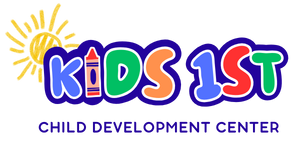Healthy Routines for Little Ones: Sleep, Nutrition, and Play

Routines are the unsung heroes of early childhood development. They bring structure to a child’s world, promote independence, reduce anxiety, and lay the groundwork for lifelong healthy habits. At Kids 1st Child Development Center, we understand the power of well-balanced routines in shaping not only a child’s day but their physical, emotional, and cognitive growth.
Creating and maintaining healthy routines for your little one doesn’t have to be overwhelming. With consistency, flexibility, and a child-centered approach, routines around sleep, nutrition, and play can support your child’s thriving both at home and at school.
Let’s dive into how to build these essential routines for your child’s well-being.
1. The Importance of Sleep for Developing Minds
Sleep is more than just rest—it’s when a child’s brain does some of its most important work. During sleep, the brain consolidates learning, processes emotions, and restores the body for the day ahead. A well-rested child is more focused, emotionally balanced, and ready to explore their world.
How much sleep do young children need?
- Infants (4-12 months): 12-16 hours (including naps)
- Toddlers (1-2 years): 11-14 hours (including naps)
- Preschoolers (3-5 years): 10-13 hours
Tips for a healthy sleep routine:
- Set a consistent bedtime and wake-up time, even on weekends.
- Create a calming bedtime routine: bath, books, snuggles, and lights out.
- Avoid screens at least an hour before bed.
- Keep the sleep environment cool, dark, and quiet.
- Offer a comfort item like a soft toy or blanket for security.
At Kids 1st, we support healthy sleep by including quiet nap times during the day, with soft music, dimmed lights, and cozy mats that help children wind down.
2. Fueling Growth with Balanced Nutrition
Proper nutrition fuels everything from brain development to immune function and physical growth. Establishing healthy eating habits early helps children learn to listen to their bodies, enjoy a variety of foods, and build a positive relationship with meals.
Key components of a balanced toddler diet:
- Fruits and vegetables: Aim for a colorful plate every day.
- Whole grains: Brown rice, oats, whole wheat bread.
- Lean proteins: Chicken, turkey, tofu, beans, eggs.
- Healthy fats: Avocados, olive oil, nut butters.
- Dairy: Milk, yogurt, cheese for calcium and vitamin D.
Tips to establish a healthy eating routine:
- Offer meals and snacks at consistent times each day.
- Sit down together for meals to model healthy habits.
- Keep portions child-sized and let them ask for more.
- Avoid using food as a reward or punishment.
- Involve your child in grocery shopping or meal prep when possible.
At Kids 1st, we provide nutritious meals and snacks that follow USDA guidelines, and we make mealtimes a social, calm experience where children are encouraged but never forced to try new foods.
3. The Power of Play in Child Development
Play is more than fun; it’s essential. Through play, children develop motor skills, problem-solving abilities, language, social-emotional understanding, and creativity. Structured and unstructured play should be a core part of every day.
Types of beneficial play:
- Free play: Self-directed and imaginative, such as building blocks or pretend play.
- Physical play: Activities like running, climbing, dancing, or throwing a ball that build gross motor skills.
- Creative play: Drawing, painting, sculpting, or playing with musical instruments.
- Social play: Interacting with peers to build communication and cooperation skills.
Creating a consistent play routine at home:
- Set aside uninterrupted time each day for your child to play.
- Allow for indoor and outdoor play opportunities.
- Rotate toys to keep things fresh and interesting.
- Join your child in their play to strengthen connection and model social behaviors.
At Kids 1st, play is integrated into every part of our curriculum. We believe in a play-based learning model where children explore the world around them with curiosity, guidance, and joy.
4. Balancing the Three Pillars: A Sample Daily Routine
While every family’s schedule is different, having a general rhythm to your child’s day brings predictability and comfort.
Sample Toddler Daily Routine:
- 7:00 AM – Wake up and breakfast
- 8:00 AM – Get dressed and free play
- 9:00 AM – Outdoor activity or outing
- 10:30 AM – Snack and story time
- 11:30 AM – Lunch
- 12:30 PM – Nap or quiet rest time
- 2:30 PM – Snack and creative play (art, music)
- 4:00 PM – Physical play or family walk
- 5:30 PM – Dinner
- 6:30 PM – Bath and calming bedtime routine
- 7:30 PM – Lights out
Consistency helps children understand what to expect, reducing tantrums and anxiety while promoting smoother transitions throughout the day.
5. Flexibility is Key
While routines are valuable, flexibility is just as important. Life is full of changes, and helping children adapt within a predictable framework builds resilience. On days when sleep is shorter, meals are delayed, or play happens in a different form, a calm attitude and reassurance go a long way.
Watch for signs your child needs a routine reset:
- Increased irritability or resistance
- Trouble falling asleep
- Decreased appetite
- More frequent meltdowns
Small adjustments can make a big difference, and your child’s teachers are always a resource for insight and support.
6. Routines Strengthen the Parent-Child Bond
Routines aren't just about structure—they're about connection. When a child knows what comes next, they feel safe and secure. When you consistently show up to guide meals, snuggles, naps, and play, your child learns that they can trust you and the world around them.
At Kids 1st, we strive to mirror the healthy routines our families establish at home, creating continuity that empowers young learners. By working together, we ensure that children feel supported and loved every step of the way.
Supporting Healthy Routines Year-Round
Building healthy habits for sleep, nutrition, and play isn’t just for the school year. These foundational routines are valuable all year long. To learn how Kids 1st supports families through every season, read Is Daycare All Year Round? Here's the Truth. And if you're ready to secure a spot in one of Orlando's top childcare programs where routines and relationships come first, check out How to Secure Your Child's Spot in a Top Orlando Childcare Program to get started.










